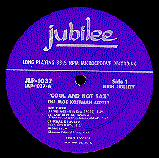 Jubilee/Josie/Gross Album Discographies
Jubilee/Josie/Gross Album DiscographiesJubilee was founded in May 1946 in New York City by Herb Abramson, who later went on to found
Atlantic Records with Ahmet Ertegun. Abramson sold the label to Jerry Blaine in September 1947.
Jubilee was one of the first record companies to tap into the white record buying public with a
black vocal group. In 1953 they recorded a country song, "Crying in the Chapel," by the Orioles.
The record became a popular music top 20 hit. They were able to follow up in 1954 with "Marie"
and "I Understand (Just How You Feel)" by the Four Tunes.
A subsidiary label called Josie was formed in 1954, which issued more up-tempo material. The
label had major hits with "Speedoo" by the Cadillacs in 1956 and "Do You Wanna Dance?" by Bobby
Freeman in 1958.
Both Josie and Jubilee had occasional hits in various styles in the '50s and '60s, but the
company's main focus, at least in albums, seemed to be in specialty markets outside mainstream
popular music. They issued an extensive line of "party" records, that is, comedy records of a risque
nature. A staple of the label was Kermit Schafer's "Blooper" records, recordings of mistakes made
on radio and television. Jubilee also distributed a label called Gross, whose sole artists were
Doug Clark and the Hot Nuts, a group that was a favorite at college frat house parties and said to
be the inspiration for the Otis Day and the Knights group in the movie Animal House. At
the time, the Hot Nuts' material was off-color enough that Jubilee's name appeared nowhere on
the Gross albums.
Of interest to rock and roll collectors are the fine albums by the Cadillacs (1045, 1089 and 5009),
the Four Tunes' 12x4 (LP-1039), Bobby Freeman's three albums (1086, 5010 and Josie
4007), The Cadillacs Meet the Orioles (LP-1117), The Dubs Meet the Shells
(Josie 4001), The Paragons Meet the Jesters (LP-1098) and The Delta Rhythm Boys
in Sweden (LP-1022). There are also many very good compilation albums on both labels; the
most collectable one is The Best of Rhythm and Blues (Jubilee LP-1014) which was
pressed on red vinyl. The albums titled Rumble (LP-1114), Boppin! (LP-1118),
and Whoppers! (LP-1119) are also desirable.
Songwriters Jeff Barry and Ellie Greenwich recorded as the Raindrops on Jubilee and issued one
album, LP-5023. J. Frank Wilson and the Cavaliers had the maudlin hit "Last Kiss" on Josie and an
album by the same name, Josie 4006. After leaving Motown, Mary Wells made one album on
Jubilee (8018) but she had little success with the label. A very good New Orleans group, the
Meters, made three albums on Josie (4010, 4011 and 4012). Near the end of the label, Jubilee
issued the first album by Emmy Lou Harris called Gliding Bird (8031).
The original labels were pink with black lettering, followed with a blue label with silver printing.
Neither the pink nor the blue labels mentioned "Jay-Gee Records." Some time in 1959, between
album numbers 1103 and 1107, the following changes occurred: the label changed to the flat black
label with silver print; the numbering prefixes changed from the JLP/SDJLP- to the JGM/JGS-
prefixes; a notation began appearing on the back cover that Jubilee was "A Product of Jay-Gee
Recording Co., Inc., A Division of the Cosnat Corp."; and the Jubilee logo changed from "jubilee/LP
HI FI" in an oval to "jubilee/JG HI FI" in an oval. This new logo, used on the album covers,
continued until the label's demise. Albums reissued after the changeover in 1959 were renumbered
with the new prefixes and reissued with updated labels, and although the
front album cover art was not usually changed, the back cover had a notation
about "Jay-Gee Records" on the bottom.
Jubilee and Josie went out of business around 1970. The master tapes went to Roulette
upon Jubilee/Josie's demise. When Morris Levy sold Roulette to Rhino in the late 1980s, the
Jubilee/Josie masters became the property of Rhino. Reissue producer Bob Hyde made extensive
forays into the Jubilee/Josie masters starting in the 1980s; many of the tapes had not been
touched since they were recorded. As a result of his efforts, many of the Jubilee and Josie songs
have been made available again on CD, some for the first time in true stereo.
We would appreciate any additions or corrections to this discography. Just send them to us via e-mail. Both Sides Now Publications is an information web page. We are not a catalog, nor can we provide the records listed below. We have no association with Jubilee/Josie/Gross Records, which we believe is currently owned by Rhino Records. Should you want to contact Rhino, or should you be interested in acquiring albums listed in this discography (which are all out of print), we suggest you see our Frequently Asked Questions page and Follow the instructions found there. This story and discography are copyright 1997, 1999, 2007 by Mike Callahan.
 Go on to Jubilee, Part 1 (1953-1955) 10-inch LPs
Go on to Jubilee, Part 1 (1953-1955) 10-inch LPs
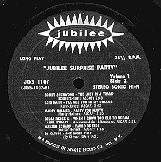 Go on to Jubilee, Part 2 (1955-1961) 1000 Popular Music
Series
Go on to Jubilee, Part 2 (1955-1961) 1000 Popular Music
Series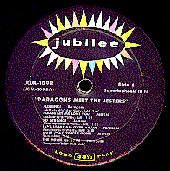 Go on to Jubilee, Part 3 (1962-1966) 5000 Popular Music
Series
Go on to Jubilee, Part 3 (1962-1966) 5000 Popular Music
Series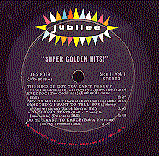 Go on to Jubilee, Part 4 (1966-1969) 8000 Popular Music
Series
Go on to Jubilee, Part 4 (1966-1969) 8000 Popular Music
Series Go on to Jubilee, Part 5 (Comedy) 2000 Series
Go on to Jubilee, Part 5 (Comedy) 2000 Series Go on to Jubilee, Part 6 (Misc.) 800, 3000, 6000, 9000
Series
Go on to Jubilee, Part 6 (Misc.) 800, 3000, 6000, 9000
Series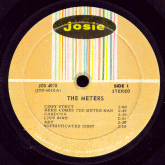 Go on to Josie label
Go on to Josie label 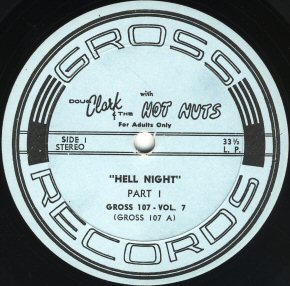 Go on to Gross label
Go on to Gross label  Back to the Discography Listings Page
Back to the Discography Listings Page  Back to the Both Sides Now Home Page
Back to the Both Sides Now Home Page